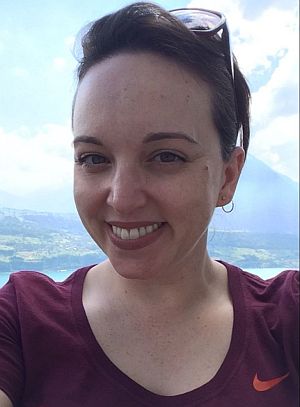Bees as Bioindicators for a Sustainable Future with Margaret Couvillion [Zoom]
Date/Time
Thursday, April 13, 2023
6:30 pm - 8:00 pm
Categories
Please note 6:30pm start time.
Lack of available forage, that is, nectar and pollen, for insect pollinators is one of the main stressors contributing to their declines.
Dr. Maggie Couvillon, Assistant Professor of Pollinator Biology and Ecology at Virginia Tech, will discuss work from her lab that takes both a landscape and backyard perspective to investigate how we might help feed hungry bees. See more about Dr. Couvillon’s work at the Couvillon Lab at Virginia Tech website.
 I am a broadly trained bee researcher with a particular interest in the foraging and recruitment behaviors of the honey bee. I earned my undergraduate degree from Loyola University in New Orleans (B.S. in Biology, minor in Chemistry) and then spent a year as an AmeriCorps *NCCC volunteer. I completed a M.S. in Neurobiology at Duke University before moving overseas for my Ph.D. with Professor Francis Ratnieks at the University of Sheffield, where I investigated mechanisms of nestmate recognition in honey bees and stingless bees. As a postdoctoral researcher with Professor Anna Dornhaus at the University of Arizona, I investigated proximate and ultimate explanations for worker size variation in the bumble bee Bombus impatiens. For a second postdoc, I rejoined the lab of Francis Ratnieks, now at the University of Sussex in Brighton, England. There I worked to develop the honey bee, in particular its waggle dance communication, as a bioindicator for the “health” of the British landscape.
I am a broadly trained bee researcher with a particular interest in the foraging and recruitment behaviors of the honey bee. I earned my undergraduate degree from Loyola University in New Orleans (B.S. in Biology, minor in Chemistry) and then spent a year as an AmeriCorps *NCCC volunteer. I completed a M.S. in Neurobiology at Duke University before moving overseas for my Ph.D. with Professor Francis Ratnieks at the University of Sheffield, where I investigated mechanisms of nestmate recognition in honey bees and stingless bees. As a postdoctoral researcher with Professor Anna Dornhaus at the University of Arizona, I investigated proximate and ultimate explanations for worker size variation in the bumble bee Bombus impatiens. For a second postdoc, I rejoined the lab of Francis Ratnieks, now at the University of Sussex in Brighton, England. There I worked to develop the honey bee, in particular its waggle dance communication, as a bioindicator for the “health” of the British landscape.
I started as an Assistant Professor at Virginia Tech in 2017.

